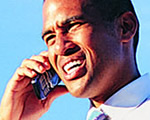 Go to main content
Go to main content
Archive Website of the UK government
Please note that this website has a UK government accesskeys system.
Main menu
Page menu
Government, citizens and rights

Standards in public life

There are several measures in place to make sure MPs and other people in public life carry out their duties in line with a set of rules. Find out what these checks are and what to do if you think an MP or councillor is breaking these rules.
Committee on Standards in Public Life
The committee keeps watch on the behaviour of people in public life, like MPs. It checks that they are behaving ethically and makes suggestions when there are issues. Areas they look at can include MPs' expenses or how political parties raise money for campaigns.
You can't complain to the committee about specific people, but you can suggest areas they could look at. You can go to public events held by the committee and give your views, or take part in a consultation. The committee also carries out a survey each year to find out what the public thinks.
Parliamentary Commissioner for Standards
The commissioner trains MPs in the rules of behaviour set out in their code of conduct, and helps them stick to these rules. This role is independent of government. If you think an MP has broken these rules you can complain to the Commissioner.
The commissioner keeps the register of MPs financial and some non-financial interests, for example payments for speaking on radio or TV programmes, or relatives in public positions. You can look at the register online.
As well as listing their interests, MPs should mention them when speaking in the House of Commons. The House of Lords has its own similar register.
Commissioner for Public Appointments
The Commissioner for Public Appointments makes sure that ministers are given responsibilities for public bodies (like the NHS and the BBC) fairly and appropriately. They check on things like the minister's experience and how suitable they are for the role. They also check the minister got the job because they were the best one for it, not because of favouritism. This role is independent of government.
Code of conduct for certain authorities in England
Certain authorities, and all local authorities in England, have a code of conduct setting out rules of behaviour that their members must stick to. The code describes things members must do and things they shouldn't. For example they:
- must treat others with respect (they can disagree but must not be rude)
- shouldn't ask others to do something that helps one political party and not the other (keep impartial)
- mustn't give out confidential information (except in some instances)
Under the code, members must say when they have 'personal interests' in something. For example, if they are in a meeting about closing a play area that their nephews use, they should tell the meeting about this. They may have to leave the meeting if their personal interest means they can't make a fair decision on something.
The code also explains what members should do when they get free gifts or are invited as guests to restaurants or social events that cost money.
Most authorities use the same model code set out by the government. Sometimes they have added minor points about their local area. If you think that a member has broken rules of their code of conduct you should complain to the council's standards committee, who enforce the code of conduct.
 Facebook
Facebook Twitter
Twitter StumbleUpon
StumbleUpon Delicious
Delicious Reddit
Reddit

